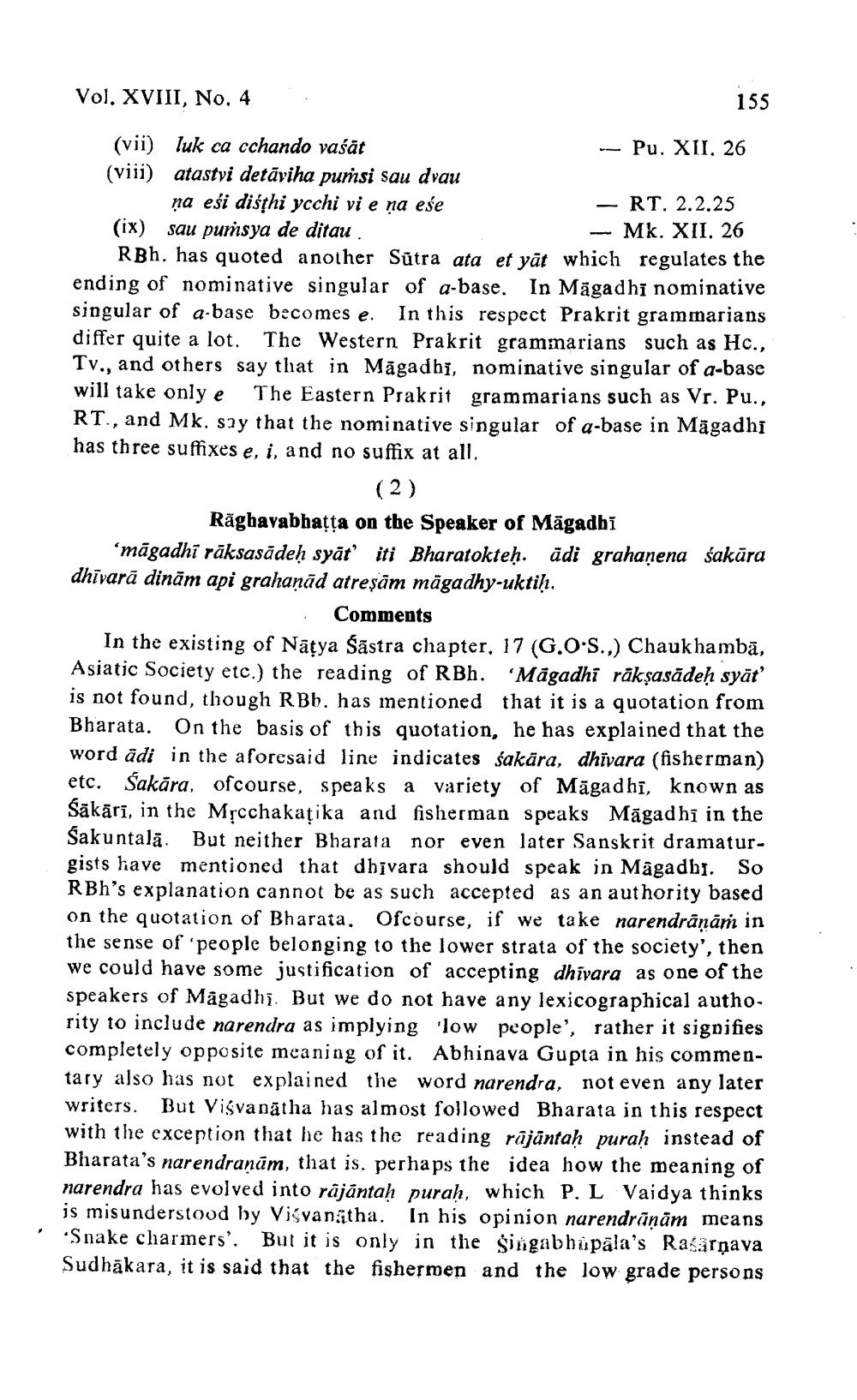________________
Vol. XVIII, No. 4
.
155
(vii) luk ca cchando vaśāt
-- Pu. XII. 26 (viii) atastvi detāviha puṁsi sau dvau ņa esi diśțhi ycchi vi e na ese
- RT. 2.2.25 (ix) sau puṁsya de ditau
- Mk. XII. 26 RBh. has quoted another Sūtra ata et yât which regulates the ending of nominative singular of a-base. In Mägadhi nominative singular of a-base becomes e. In this respect Prakrit grammarians differ quite a lot. The Western Prakrit grammarians such as Hc., Tv., and others say that in Māgadhi, nominative singular of a-base will take only e The Eastern Prakrit grammarians such as Vr. Pu., RT., and Mk. say that the nominative singular of a-base in Māgadhi has three suffixes e, i, and no suffix at all,
(2) Rāghavabhatta on the Speaker of Māgadhi ‘māgadhi rāksasādeh syāt' iti Bharatokteh. ādi grahaņena śakāra dhīvarā dinām api grahaņād atreșām māgadhy-uktiḥ.
Comments In the existing of Nāțya Šāstra chapter, 17 (G.O.S.,) Chaukhambā, Asiatic Society etc.) the reading of RBh. "Māgadhi rākṣasādeḥ syāt' is not found, though RBb. has mentioned that it is a quotation from Bharata. On the basis of this quotation, he has explained that the word ādi in the aforesaid line indicates sakāra, dhīvara (fisherman) etc. Sakāra, ofcourse, speaks a variety of Māgadhī, known as Śākārī, in the Mịcchakațika and fisherman speaks Māgad hs in the Sakuntalā. But neither Bharata nor even later Sanskrit dramaturgists have mentioned that dhivara should speak in Māgadbi. So RBh's explanation cannot be as such accepted as an authority based on the quotation of Bharata. Ofcourse, if we take narendrānāṁ in the sense of people belonging to the lower strata of the society', then we could have some justification of accepting dhivara as one of the speakers of Magadhi. But we do not have any lexicographical autho. rity to include narendra as implying 'low people', rather it signifies completely opposite meaning of it. Abhinava Gupta in his commentary also has not explained the word narendra, not even any later writers. But Visvanātha has almost followed Bharata in this respect with the exception that he has the reading rājāntaḥ purah instead of Bharata's narendranām, that is perhaps the idea how the meaning of narendra has evolved into rájantah purah, which P. L Vaidya thinks is misunderstood by Visvanatha. In his opinion narendrānām means Snake charmers'. But it is only in the singabhupala's Rasarnava Sudhākara, it is said that the fishermen and the low grade persons




